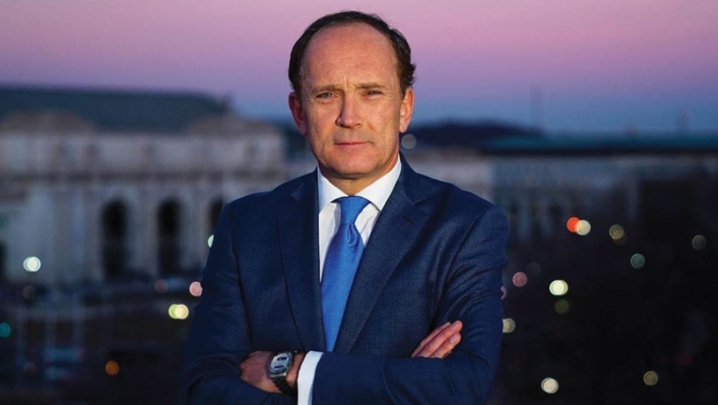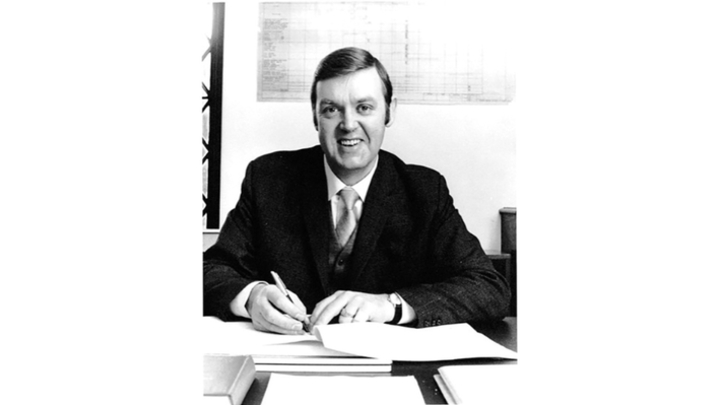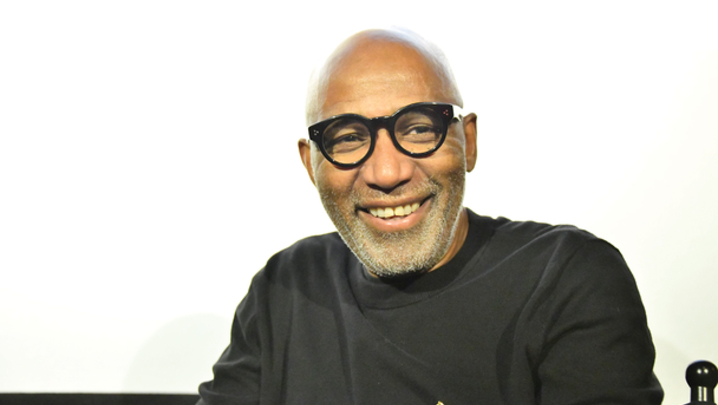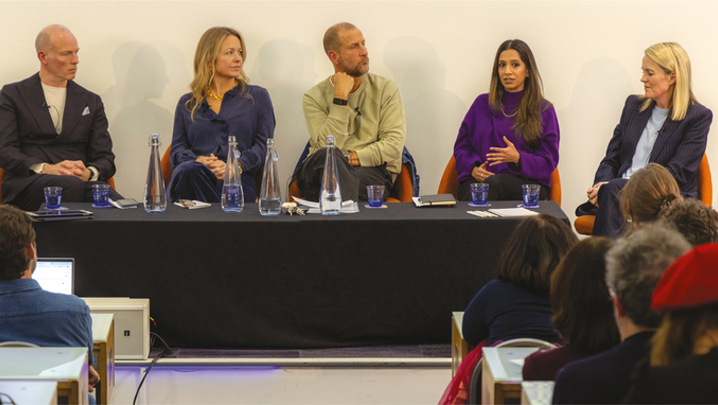A dramatic clash over the future funding of the BBC has redrawn the battlelines for the economists and the diehards over the corporation’s future, reports Maggie Brown
City University in London is the pioneer of media “speed debates”, where big hitters can talk freely in front of a hand-picked band of relevant experts. In July it struck gold, when it hosted “The Future of the Licence Fee”, the first of three half-day seminars being held in the run-up to the general election that will precede the BBC’s Charter review.
The debate caused waves in the broadcasting community thanks to forthright contributions from Tony Hall and Lord Burns, respectively BBC Director-General and Channel 4 Chairman.
But first came Hall’s announcement of outline plans to abandon the BBC’s inhouse programme production quota (see report on page 20) at City. “This is the argument I want to run with for the next two years,” he said.
His decision to make such an important policy announcement at City shielded him from a more forensic debate about the sustainability of the universal licence fee, the subject of Burns’s contribution, which Hall did not stay to hear.
“It’s a smart way of distracting us from talking about the licence fee – part of a strategy” observed former Chairman of Ofcom Colette Bowe.
What Hall did say about the licence fee was: “I have real confidence in the licence fee. Whatever reform people come up with, they need to answer this question: is there a better way [of funding the BBC] than that 40p a day [from the licence fee]? I don’t think there is.”
Burns called on the BBC to make long-term plans for replacing the licence fee. His proposal revolved around a simple system of conditional access, which would establish a direct link between the BBC and each individual user.
This, he stressed, would not involve subscription in the short term. At the very least, the Channel 4 Chairman argued, the corporation should consider introducing iPlayer registration.
At its simplest, this could be a way of ensuring iPlayer users pay the BBC licence fee. “You can either say that viewers only watch the iPlayer if they pay a licence fee, or they can watch the iPlayer without a licence fee – if they pay some money,” he said.
“This is the first big opportunity to move towards conditional access – no pay, no play – but [BBC executives] won’t even think about it because they think this is the first step towards subscription. They will not think about it because they are so wedded to the licence fee.”
“Where is it that you are headed for?” Burns challenged the BBC.
This paved the way for two hours of intense, stimulating debate, which, as organiser Stewart Purvis noted, tended to divide into two camps, the economists and the BBC diehards.
Burns led a searching Charter review in 2006 for Labour’s Culture Secretary Tessa Jowell, only to find his main recommendations for contestable funding and external regulation rejected.
He said: “Concerns about the political independence of the BBC have become more severe over the decade.”
Burns noted that the licence fee is increasingly seen as a tax, as evidenced by the 2010 deal, which froze the fee but added to the BBC’s burdens by forcing it to pay for the World Service, among other responsibilities.
Meanwhile, the National Audit Office (NAO) has won the freedom to investigate BBC finances.
This is the first big opportunity to move towards conditional access – no pay, no play
“None of that gives me much confidence in being able to rely on a compulsory licence system,” said Burns. He added: “Compare conditional access and earning your place in a free market with a… tax-based system constantly under pressure.
“One of the recommendations we made [in 2006] was that, before we got to the end of this Charter, there should be a review to move towards a system of conditional access.
“I am sorry to see the BBC is more concerned about the next licence fee... to stick with what it has. I just think we should take a much longer-term view, rather than patching it up.”
On the subject of whether viewers should pay for the iPlayer, he said: “There are two ways of dealing with that. Either the iPlayer is part of your television subscription, password protected, licensed. Or, the alternative is a two-tier system, like [having] a black-and-white licence or a colour licence.
“With the internet encroaching, it seems to me extraordinary not to take advantage of this development.”
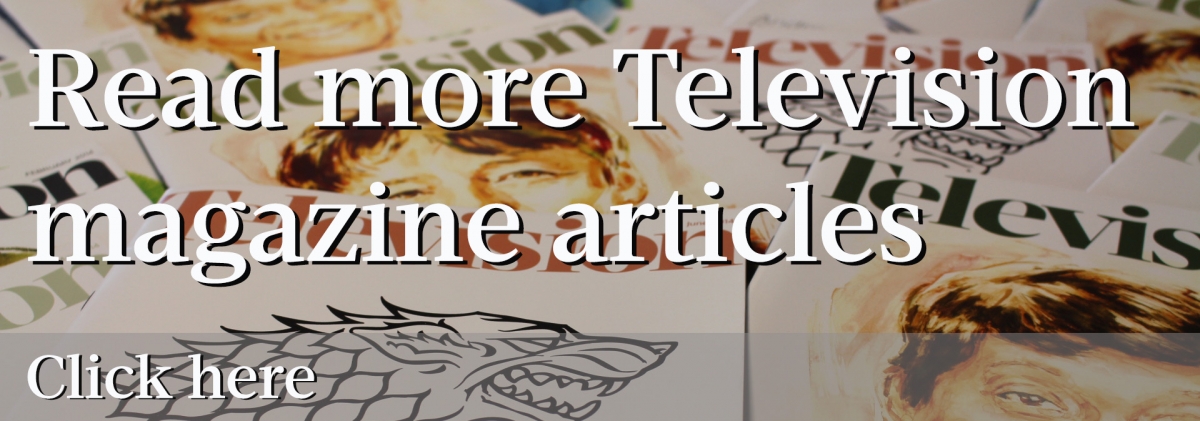 The former Treasury Permanent Secretary added: “I know what it is like when it comes to the issue of what should happen to the BBC’s income. Treasury pressure goes only one way.”
The former Treasury Permanent Secretary added: “I know what it is like when it comes to the issue of what should happen to the BBC’s income. Treasury pressure goes only one way.”
His implication was that the Treasury sees the licence fee as a form of tax and won’t want to increase it. In future, however, the licence fee might have to pay for more services on top of funding the BBC.
Burns contrasted this with Channel 4, which he has chaired for nearly five years: “The freedom you get from owning your own income is just extraordinary…
“If I had the choice of earning my own income or being subject to the NAO, I know which I would choose.”
Burns added: “My ambition is not to reduce the BBC’s income, but retain it, grow it, to get it out from under the political debate.”
The BBC should have more confidence in its capabilities, he argued: “I don’t come at this wanting to reduce or neutralise the BBC. [Subscription] is the best way for the long-term success of the organisation. Plot the path to a different outcome. In 30 years’ time, do we really imagine [there will be] a licence fee?”
He added that the BBC already has additional income from BBC Worldwide, and could move towards “multiple sources of income”.
But he accepted that a way would have to be found to pay for BBC Radio.
Delegates, led by media commentator Steve Hewlett, former Today editor Phil Harding and Professor Sylvia Harvey, challenged Burns on how this policy could co-exist with the principle of universality.
Is there a better way [of funding the BBC] than that 40p a day? I don’t think there is
Harding said: “Alter the relationship and you alter the nature of the organisation.”
Harvey added: “Freedom that includes exclusions is not universality; you are ducking the broader issue.”
Burns replied that some BBC services, such as the news channel, should be freely available: “In the world of conditional access you can have all sorts of packages, like Sky. It is not an issue.”
“I could see a transition period, [when we] might even reduce the licence fee, take some pressure off this issue, and you would move parts of it to conditional access.
“It seems to me inevitable, in any case, because of technological constraints.”
This did not convince Steve Morrison, Chairman of All3Media, who backed the status quo: “Why not face the fact that, for a relatively small sum of money, we get a fantastic service… if there is no licence fee, the BBC’s income will go down dramatically.”
Economist Vicky Pryce, a former visiting professor at City University’s Cass Business School, waded in to support Burns. She noted that, in a room full of BBC people, it was very dangerous to say what he had just said. “A mix in funding, a mix of tax and subscription, what is wrong with that?... The funding structure has to change, and very substantially,” said Pryce.
She added that the licence fee is regressive because rich and poor people pay the same: “Any tax system would be an improvement, and actually be more legitimate.”
James Purnell, the BBC’s Director of Strategy and Digital, stuck firmly to the BBC script: “Yes, we think a licence fee is the best way, not the least worst way.”
Subscription has three drawbacks, he argued – viewers would end up paying more; it would significantly decrease the amount of money going into UK production; and end the social benefit of universally available services.
“The key thing for us is, let’s not be techno determinist about this... in every licence-fee debate people always say this is the last one...
“We are confident the licence fee is a good and effective way to fund the BBC.”
City University’s Director of Broadcasting, Lis Howell, interjected that this ignored the fact that people are being prosecuted for not paying the licence fee. Moreover, technology is changing the way that people consume TV.
Purnell conceded: “We are interested in modernising the licence fee to cover catch up; that is a way of saying we think the licence fee can and should continue.
“It is easy to make the assumption... [that with] different behaviour, the model is fundamentally broken. We see no evidence of that. We think the system has worked really, really well.”
The BBC will consider the case for decriminalising non-payment, but Purnell pointed out that the famously law-abiding Japanese do not face criminal sanctions, and only 75% pay their licence fee.
The BBC has estimated that it would cost £500m to move to a conditional-access system, and it would be much more expensive to run than the current licence-fee collection methods.
Ray Gallagher, adviser to Parliament’s Culture, Media and Sport Committee, responded that, in 2004, Greg Dyke, then BBC Director-General, had deliberately promoted Freeview as a way to “flood the market with dumb Freeview boxes”. His strategy had ensured that there was no facility to turn users on or off, as with satellite and cable, and so introduce subscription.
Gallagher asked: “Should steps be taken to promote conditional access [in future]?”
Louis Heinsman, Head of International Relations at the Dutch public service broadcaster, Nederlandse Publieke Omroep (NPO), counselled caution in making changes.
His government abolished the licence fee in 2000. Since then, NPO has been funded out of general taxation. Five of the six successive governments had made cuts.
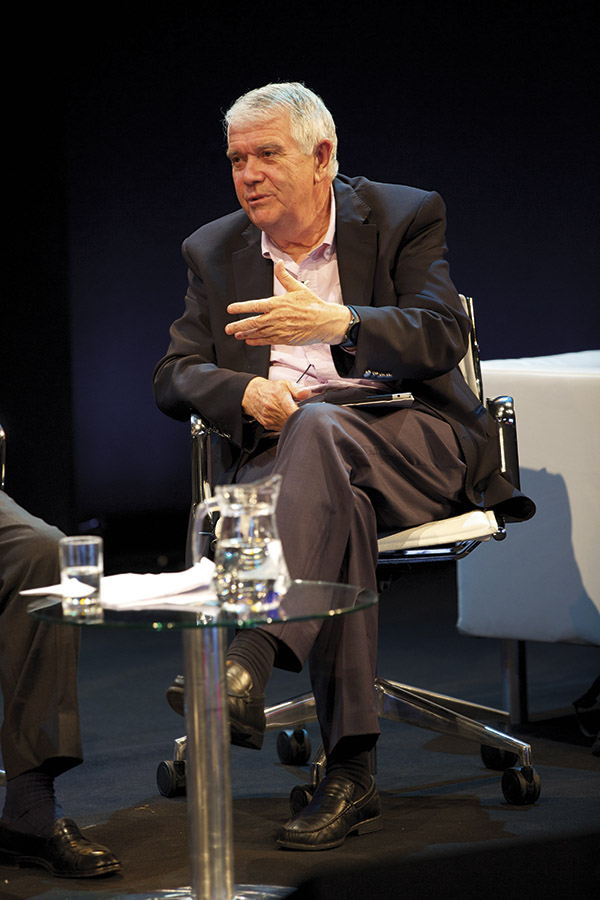 Lord Burns wants to retain, not reduce, the BBC's income (Credit: Paul Hampartsoumian)
Lord Burns wants to retain, not reduce, the BBC's income (Credit: Paul Hampartsoumian)
“For politicians it is all the same kind of money and that is a big danger… Now they interfere,” said Heinsman. “The simple lesson of the Netherlands is, if you get rid of the licence fee, it is impossible to reintroduce it. Be very careful.”
Professor Jean Seaton, the BBC’s official historian, expressed concern that what was “completely missing in the debate is the national interest”.
“The BBC is a unique institution that is uniquely British. This is not a trivial concern, but a major concern.”
The final word went to Bowe before the debate was opened to the floor. She said: “It strikes me about people here, who work or have worked for the BBC, how quickly their defensive reaction comes in.
“What I would say to BBC friends here is: make sure you are open and listening to the alternatives of all sources of revenue.
“I have a lot of sympathy for the idea the BBC should use this opportunity to try out alternative models for funding itself.
“It is a no-brainer, the moment to look at conditional access for people using alternative devices. Why not do that?
“I haven’t heard a single argument that some form of conditional access around the iPlayer is not the thing to try.
“This is the moment the BBC needs to put itself ahead of the argument. If you are the BBC right now, you are surrounded by very serious challenges.
“There isn’t a choice... this isn’t going to be an easy ride for the BBC.”
Hall lets the market loose
Tony Hall is engaged in an energetic Charter renewal campaign, designed to win allies and disarm politicians. He chose to unveil his most radical proposal to revolutionise the BBC’s programme supply at a small industry conference, just as Ofcom’s public service broadcasting review was getting under way.
As he put it, the aim is to bring “the spirit of the entrepreneur and pioneer to the BBC”. He also enlisted retail terminology, promising “great programmes at great prices” and “competition to improve what we give the public” – with the John Lewis qualifier that great prices do not always mean the cheapest.
In essence, Hall is offering the (rather fuzzy) outline of a deal to independent producers, which will lead to talks with Pact, Equity, and Bectu this autumn.
The BBC will remove its 50% inhouse production guarantee, in exchange for its 2,500 producers being able to compete with outside companies for business. His ambition is for a “true level playing field between independent producers and BBC Productions”.
For BBC producers, at best, it offers an escape from having “only one buyer” and BBC Productions being “limited in the kind of commercial deals it can make. It can’t compete globally in the way big independent studios can.”
For independents, the plan offers the prospect of £400m more business.
A system set up to encourage competition has begun to corral producers into three separate tribes
Hall also said that the corporation had experienced 20 years of “managed competition” to foster independents; it was time to move on from the system of the 25% quota for qualifying independent producers and the further 25% of the WoCC (Window of Creative Competition).
This system has created today’s “mature market, so successfully that the UK is enjoying a golden moment”, noted Hall. “But now we need change”. A “system set up to encourage competition… has begun to forcibly corral producers into three separate tribes.”
He claimed that a renewed spirit of competition would mean less intervention. There should be “regulation of the TV supply market only where it is needed... Is it right that independent producers [that are] part of global organisations bigger than the BBC need guarantees or special negotiating protections?”
On the other hand, “small independent producers may continue to need support”. However, “both big independent producers and BBC Productions should be able to stand on their own feet”.
Hall underscored the need for a deal with producers (which he expanded upon to the Culture, Media and Sport Committee on 15 July): “These are far from final proposals. We will be working with partners on future plans.”
Proposals will be put to the BBC Trust to form part of its own review of programme supply this autumn. “It will take a new Charter to put into effect.”
Many industry experts foresee the beginning of the end for BBC Productions. Not Hall, who said: “I do not believe the BBC’s future is as a publisher broadcaster.”
The corporation’s global news gathering is excluded from Hall’s production revolution, due to the need “to control our own voice”.
The BBC would also need to retain its capacity to organise big live events, from sport to state funerals, and to protect regional production.
In addition, Hall proposed a rapid extension of “compete and compare” benchmarking, to ensure efficiency in back-office activities.
Pact Chief Executive John McVay’s enthusiastic welcome for these proposals all but guarantees Hall a valuable ally in his campaign for a new Charter and a healthy licence-fee settlement following the next general election.
Professor Jean Seaton, however, pointed to the implied threat to independents from Hall’s policies. Steve Morrison, Chairman of All3Media, picked up on this: he wanted to know what would happen to producers’ terms of trade.
The devil will be in the detail.


